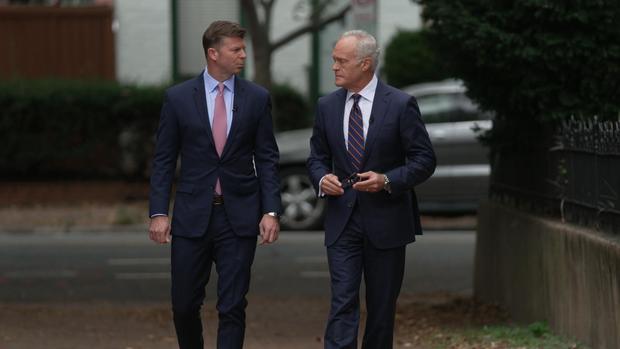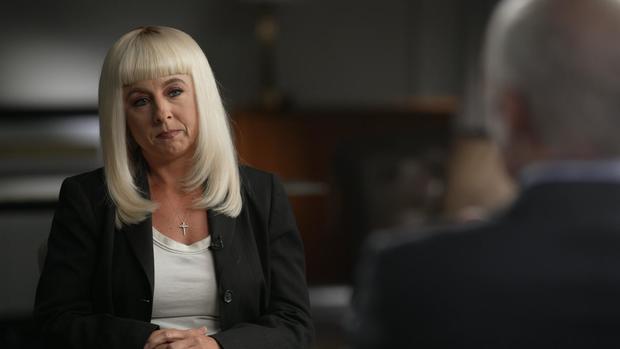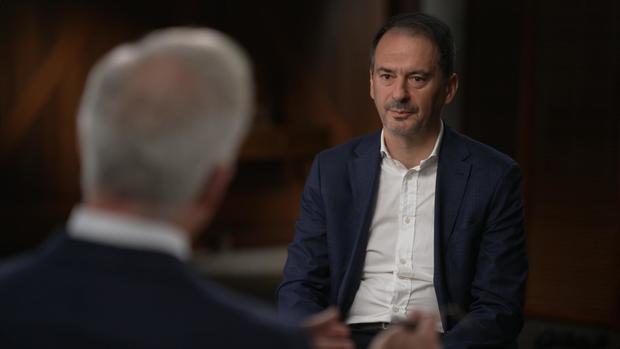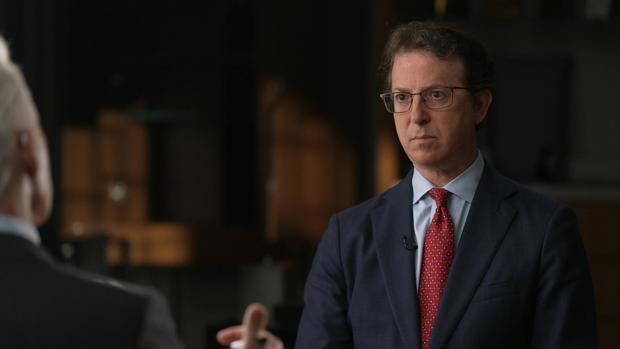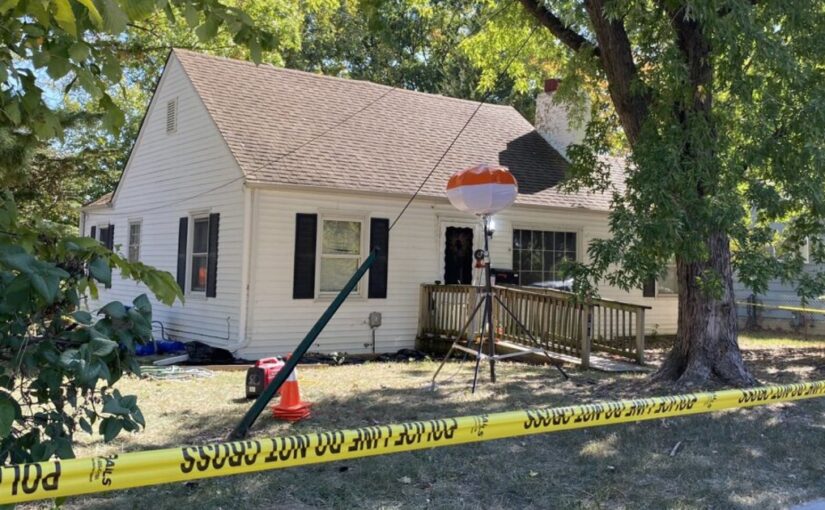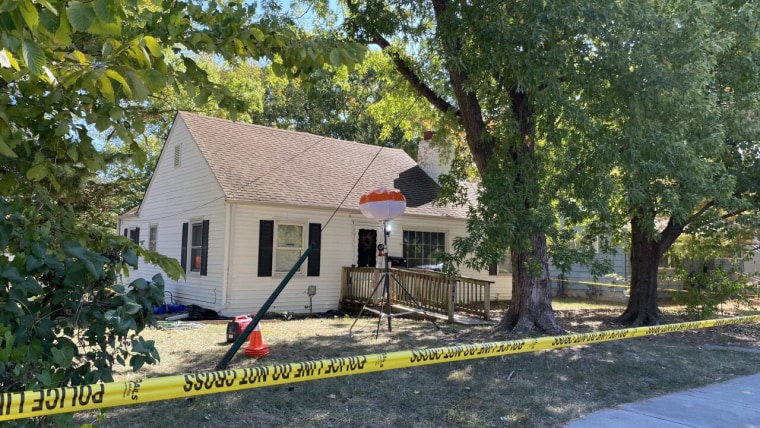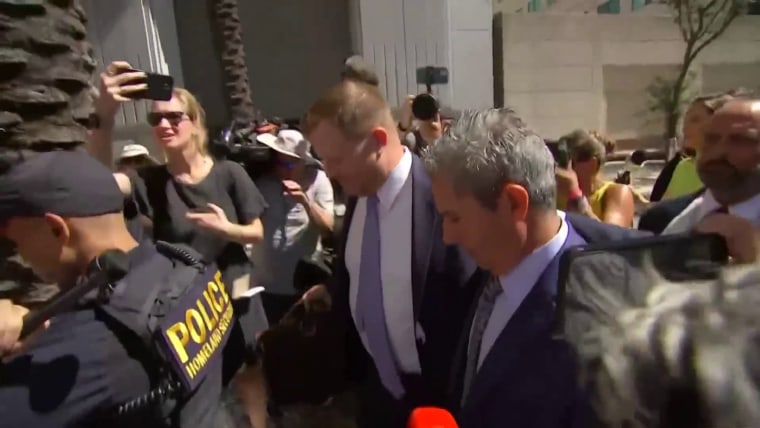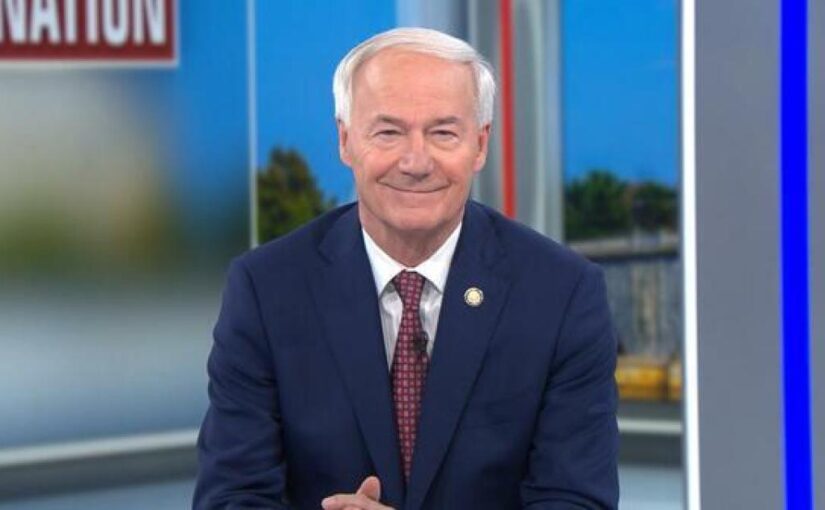This report is the result of a joint investigation by 60 Minutes, The Insider, and Der Spiegel
A lead U.S. military investigator examining reports of what has become known as Havana Syndrome told 60 Minutes he believes U.S. officials are being attacked by Russia and that the official threshold to prove it was set impossibly high.
Greg Edgreen, a now-retired Army lieutenant colonel who ran the Pentagon investigation into what officials refer to as “anomalous health incidents,” said the bar for proof was set so high because the country doesn’t want to face some very hard truths, like the existence of possible failures to protect Americans.
“Unfortunately I can’t get into specifics, based on the classification,” Edgreen said. “But I can tell you at a very early stage, I started to focus on Moscow.”
A 2023 government report deemed it “very unlikely” that a foreign adversary was behind the mysterious brain injuries suffered by U.S. national security officials, yet more than 100 Americans have symptoms scientists say could be caused by a beam of microwaves or acoustic ultrasound. Victims are frustrated that the government publicly doubts an adversary is targeting Americans. The ongoing, five-year 60 Minutes investigation has now uncovered new evidence pointing toward Russia.
Are we being attacked?
White House staff, CIA officers, FBI agents, and military officers and their families are among those who believe they were wounded by a secret weapon firing a high-energy beam of microwaves or ultrasound.
Edgreen said the officers targeted were top performers.
“And consistently there was a Russia nexus,” he said. “There was some angle where they had worked against Russia, focused on Russia, and done extremely well.”
60 Minutes
Last year, President Biden attended the NATO summit in Lithuania after Russia’s invasion of Ukraine. Multiple sources told 60 Minutes that a high-level Department of Defense official was struck during the summit. Edgreen shared what the reported incident meant to him.
“It tells me that there are no barriers on what Moscow will do, on who they will attack, and that if we don’t face this head on, the problem is going to get worse,” Edgreen said.
60 Minutes has agreed to withhold the last name of “Carrie,” a Havana Syndrome victim who is still an FBI agent working in counterintelligence. Her case also points to Russia.
She said she was home in Florida in 2021 when she was hit by a crippling force.
“And bam, inside my right ear, it was like a dentist drilling on steroids. That feeling when it gets too close to your eardrum? It’s like that, times 10,” she said.
At the same time, she said, the battery in her phone began to swell until it broke the case. Finally, she passed out on a couch. Because of chest pain, she was checked by a cardiologist, and then returned to duty. For months, she complained to her colleagues of memory issues and problems multitasking.
“My baseline changed,” she said. “I was not the same person.”
60 Minutes
She spoke with the FBI’s permission but wasn’t allowed to talk about the investigations she was working on when she was hit. 60 Minutes learned from other sources, one of them involved Russian Vitalii Kovalev, who was caught speeding in a Ford Mustang near Key West, Florida in 2020. After a high-speed car chase, a search of the car found notes related to bank accounts along with a device capable of erasing the car’s computerized data, including its GPS records. There was also a Russian passport found.
The investigation into Kovalev
What 60 Minutes has learned along with investigative partner Christo Grozev, a journalist for The Insider, an investigative magazine by Russian exiles, suggests that Kovalev was a Russian spy.
Kovalev studied in a military institute, learning about radio electronics, said Grozev, who’s renowned for his experience unmasking Russian plots. After two years working in a military institute, Kovalev suddenly became a chef in New York and Washington.
“It is not an easy job to just leave that behind. Once you’re in the military, and you’ve been trained, and the Ministry of Defense has invested in you, you remain at their beck and call for the rest of your life,” Grozev said.
It’s not clear what Kovalev might have been up to, but sources told 60 Minutes that, over months, he spent 80 hours being interviewed by “Carrie,” who sources said had investigated several Russian spies for the FBI.
Kovalev received 30 months in jail and, after serving his time, went back to Russia in 2022, ignoring American warnings he was in danger because he’d spent so much time with the FBI. Grozev uncovered a death certificate from last year, which says Kovalev was killed at the front in Ukraine.
“One theory is that he was sent there in order for him to be disposed of,” Grozev said.
60 Minutes
Mark Zaid, “Carrie’s” attorney who holds a security clearance, has more than two dozen clients suffering symptoms of Havana Syndrome. He said victims include members of the CIA, State Department and FBI.
“The one thread that I know of with the FBI personnel that is common among most, if not all, of my clients other than the family members connected to the employee, was they were all doing something relating to Russia,” Zaid said.
Russian intelligence unit 29155
If it is Russia, Grozev believes Russian intelligence unit 29155 is involved. Grozev has a long track record of uncovering Russian documents and reveals he found one that may link the 29155 unit to a directed energy weapon.
It’s a piece of accounting. A 29155 officer received a bonus for work on “potential capabilities of non-lethal acoustic weapons…”
“It’s the closest to a receipt you can have for this,” Grozev said.
There’s also evidence 29155 may have been present in Tbilisi, Georgia when Americans reported incidents there. Grozev believes members of 29155 were there to facilitate, supervise, or possibly personally implement attacks on American officials using an acoustic weapon.
Sources have told 60 Minutes that an investigation centered on Russian Albert Averyanov, whose name appears on travel manifests and phone records alongside known members of 29155. He’s also the son of the unit’s commander.
Incidents began in Tbilisi the day after a phone call, which was intercepted. Sources said a man on the call asked in Russian: “Is it supposed to have blinking green lights?” and “should I leave it on all night?”
The next day, a U.S. official, their spouse, and their child were hit. That same week, the wife of a Justice Department official, who asked “60 Minutes” to withhold her name over safety concerns, was blindsided by a sound in her laundry room in Tbilisi on Oct. 7, 2021.
“And it just pierced my ears, came in my left side, felt like it came through the window, into my left ear,” she said.
She had a piercing headache and projectile vomited.
Afterward, she looked at the security camera and spotted a vehicle outside she didn’t recognize. There was also a man nearby. 60 Minutes sent a photo of Averyanov to the woman, who said it “absolutely” looks like the man she spotted outside.
“And when I received this photo, I had a visceral reaction,” she said. “It made me feel sick. I cannot absolutely say for certainty that it is this man, but I can tell you that even to this day, looking at him makes me feel that same visceral reaction. And I can absolutely say that this looks like the man that I saw in the street.”
Grozev found Averyanov’s phone was turned off during the Tbilisi incidents, and sources say there’s evidence someone in Tbilisi logged into Averyanov’s personal email during this time. Grozev believes this was most likely Averyanov himself—placing him in the city.
Has there been a cover-up?
Despite incidents like the ones in Tbilisi, the official U.S. intelligence assessment released last year found that it was “very unlikely” a foreign adversary is responsible. The report did acknowledge that some intelligence agencies have only “low” or “moderate” confidence in that conclusion.
This month, the National Institutes of Health reported results of brain scans on patients with symptoms. NIH said there’s no evidence of physical damage. The medical science of so-called anomalous health incidents remains vigorously debated. For its part, the Office of the Director of National Intelligence says the injuries suffered by victims are probably the result of “preexisting conditions, conventional illnesses and environmental factors.”
60 Minutes
But Zaid, who’s representing more than two dozen anomalous health incident clients, said he doesn’t believe the entire story is in the U.S. intelligence assessment. Zaid said he knows of classified information that undermines or contradicts what’s been said publicly.
“There is, in my view, without a doubt, evidence of a cover up. Now, some of that cover up is not necessarily that, ‘oh, we found a weapon,'” Zaid said. “What I’ve seen more so is, ‘we see lines of inquiry that would take us potentially to answers we don’t want to have to deal with, so we’re not going to explore any of those avenues.'”
As with all spy stories, much is classified and what remains is circumstantial. None of the witnesses 60 Minutes spoke with wanted to come forward, but they all felt compelled to shine a light on what they see as a war of shadows — a war America may not be winning.
“If this is what we’ve seen with the hundreds of cases of anomalous health incidents, I can assure that this has become probably Putin’s biggest victory,” Grozev said. “In his own mind this has been Russia’s biggest victory against the West.”
Statements from the Office of the Director of National Intelligence, the White House, and the FBI
In response to inquiries from 60 Minutes, the Office of the Director of National Intelligence referred to the Intelligence Community’s Annual Threat Assessment commentary on anomalous health incidents. The assessment was released earlier this month and states:
“We continue to closely examine anomalous health incidents (AHIs), particularly in areas we have identified as requiring additional research and analysis. Most IC agencies have concluded that it is very unlikely a foreign adversary is responsible for the reported AHIs. IC agencies have varying confidence levels because we still have gaps given the challenges collecting on foreign adversaries—as we do on many issues involving them. As part of its review, the IC identified critical assumptions surrounding the initial AHIs reported in Cuba from 2016 to 2018, which framed the IC’s understanding of this phenomenon, but were not borne out by subsequent medical and technical analysis. In light of this and the evidence that points away from a foreign adversary, causal mechanism, or unique syndromes linked to AHIs, IC agencies assess those symptoms reported by U.S. personnel probably were the result of factors that did not involve a foreign adversary. These findings do not call into question the very real experiences and symptoms that our colleagues and their family members have reported. We continue to prioritize our work on such incidents, allocating resources and expertise across the government, pursuing multiple lines of inquiry and seeking information to fill the gaps we have identified.”
In response to questions from 60 Minutes, a White House spokesperson responded:
“At the start of the Biden-Harris Administration and again following the 2023 Intelligence Community assessment, the White House has directed departments and agencies across the federal government to prioritize investigations into the cause of AHIs and to examine reports thoroughly; to ensure that U.S. Government personnel and their families who report AHIs receive the support and timely access to medical care that they need; and to take reports of AHIs seriously and treat personnel with respect and compassion. The Biden-Harris administration continues to emphasize the importance of prioritizing efforts to comprehensively examine the effects and potential causes of AHIs.”
In response to questions from 60 Minutes, an FBI spokesperson responded:
“The issue of Anomalous Health Incidents is a top priority for the FBI, as the protection, health and well-being of our employees and colleagues across the federal government is paramount. We will continue to work alongside our partners in the intelligence community as part of the interagency effort to determine how we can best protect our personnel. The FBI takes all U.S. government personnel who report symptoms seriously. In keeping with this practice, the FBI has messaged its workforce on how to respond if they experience an AHI, how to report an incident, and where they can receive medical evaluations for symptoms or persistent effects.”
